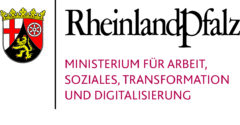EURES and its networks in border regions
EURES (EURopean Employment Services) is a European Commission programme to support cross-border mobility of employment markets (employees and employers).
There are 2 EURES services: EURES Transnational (advice for professional mobility, for example, between Spain and Denmark) and EURES Transfrontalier (advice for professional mobility within a border region).
A specific role is played by EURES in border regions; i.e. In geographical areas where there are large flows of cross-border workers.
Over 1,000,000 people, living in one EU State and working in another, face different national realities and legal systems. They may encounter legal, administrative or tax mobility issues on a daily basis.
EURES advisors in our border region offer employees and job seekers who live in one country and who work or wish to work in another country a personalised service and support relating to their rights and obligations, as well as assistance with cross-border placement.
EURES in the Greater Region
The Greater Region of SaarLorLux – Rhineland – Palatinate – Wallonia- German-speaking Community of Belgium, located between the Rhine, Moselle, Saarland and Meuse, has a total area of 65,401km².
Its population is 11.2 million, which represents 3% of the total population of the EU-15 member countries and contributes the same proportion to the community GDP.
Divided between Latin and Germanic culture, the Greater Region is also located at the centre of the railway axis of European development and has an urban, rural and industrial network, a source of rich and permanent economic and cultural relations.
It is materialised by significant flows of cross-border workers and consumers. Overall, there is a movement of around 200,000 cross-border workers, 160,000 of whom are moving to Luxembourg alone.
A cross-border EURES partnership has been built on this space, made up of 20 partners. Nearly 30 EURES advisors work each day to support job seekers, cross-border workers and employers in exercising their right to cross-border mobility.
Objectives
- Intermediation between job offers and applications on both sides of the border
- Facilitating the transparency of job offers and applications
- Support for employers in their recruitment of workers from other countries.
- Information and advice for potentially mobile employees on employment opportunities and living and working conditions within the European Economic Area.

Need more information about your situation?
Our partner CRD \ EURES Frontaliers Grand Est is ready to provide you with a first level of information, free of charge!
Contact Frontaliers Grand Est






















